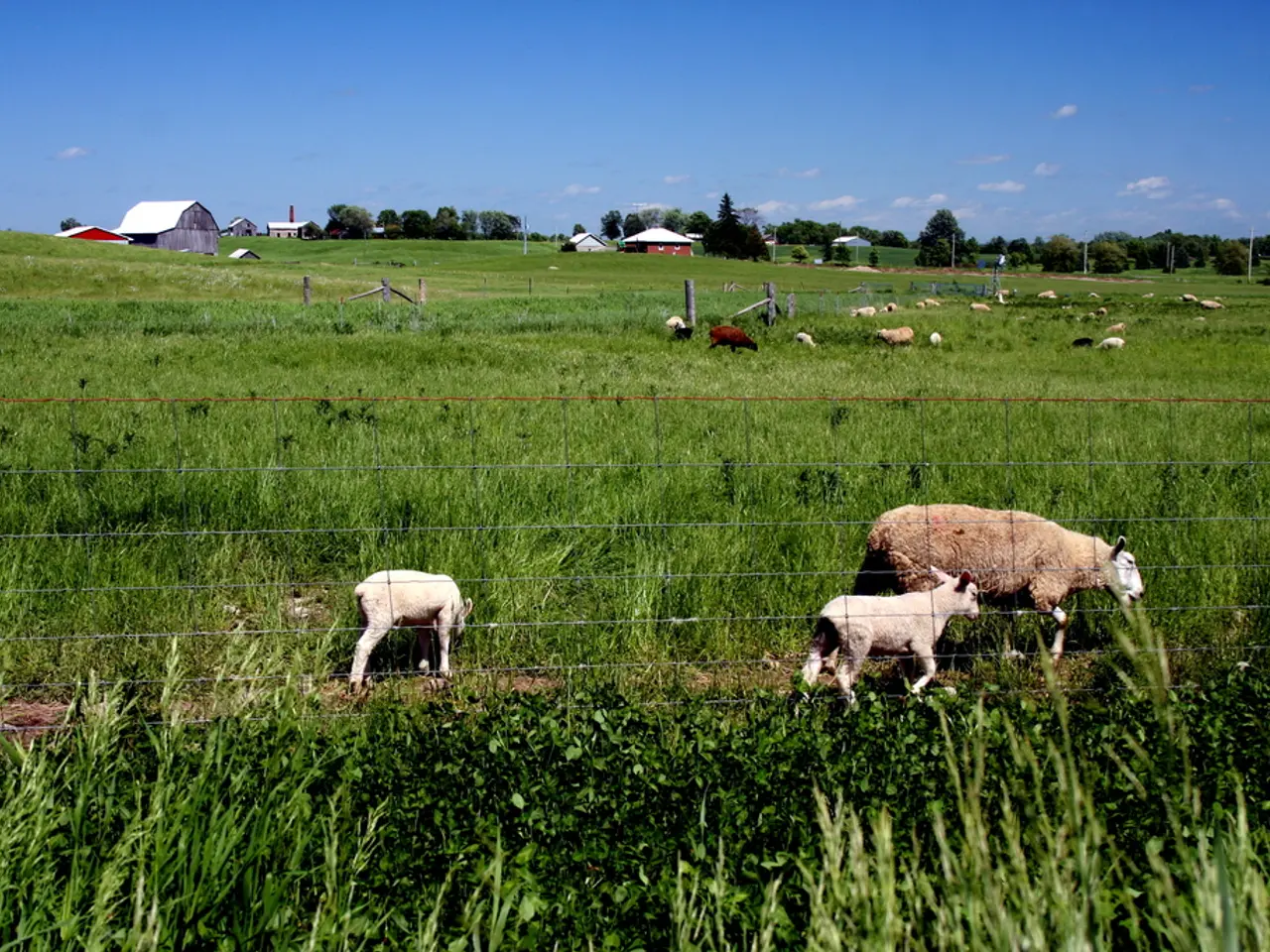The Possibility of Eco-Friendly Farming Using Jamunapari Goats is Commendable
Jamunapari goats, native to India, are gaining recognition as a preferred choice for farmers seeking to adopt sustainable farming practices. Known for their high milk yield and adaptability, these goats offer numerous benefits that make them economically beneficial and environmentally viable for diversified farming systems.
High Milk Production and Dual-Purpose Utility
Jamunapari goats, often referred to as the “milk queen” of goats, produce around 2 to 3 liters of milk per day. This high milk yield makes them an excellent choice for dairy-focused farming, improving farm profitability. Additionally, while primarily valued for milk, Jamunapari goats also contribute to meat production, offering flexibility in farm outputs and enhancing sustainability and income diversification [1][2][5].
Environmental Compatibility and Resource Efficiency
Goats, including Jamunapari, naturally clear weeds, shrubs, and wild grasses, helping to convert barren land into cultivable land without harmful chemical intervention. Their manure enriches soil fertility organically, supporting sustainable land management practices [2]. Furthermore, goat farming requires relatively modest investment and can make use of diverse feed resources, promoting resource-efficient animal husbandry that fits well within sustainable farming frameworks [3].
Adaptability and Management
Although less hardy than some meat breeds like Sirohi, Jamunapari goats can thrive in various Indian climatic conditions with proper housing and nutrition, ensuring consistent productivity [1][2]. This adaptability makes them suitable for cultivation across India.
Economic Benefits and Market Opportunities
By producing standard goat milk and meat, farmers can increase their revenue and access premium market opportunities. The meat of Jamunapari goats is delicate and delicious, and kids reach impressive weights in a relatively short time. Moreover, Jamunapari goats require minimal veterinary care, making them a suitable choice for small farmers [6].
A Natural Approach to Weed Control
Jamunapari goats are effective at controlling weeds and managing land, contributing to a natural approach to weed control. This aspect of their behaviour further enhances their suitability for sustainable farming practices.
A Preferred Choice for Sustainable Farming
With the growing interest in standard and commonly arranged animals, Jamunapari goats are suitable for regular production practices. As demand for sustainable and organic farming continues to grow, Jamunapari goats are expected to play an increasingly important role in the future of agriculture.
The Jamunapari goat is characterized by a contorted nose, long ears, and an overall udder in females, and is generally white or light brown with patches. A Jamunapari doe can produce 2 to 3 liters of milk daily, which is rich in fat content and nutritious [4].
For farmers looking to adopt sustainable practices, investing in Jamunapari goats is a great option due to their numerous benefits. By choosing Jamunapari goats, farmers can contribute to environmental conservation, improve their farm's profitability, and help create a more sustainable future for agriculture.
[1] Indian Journal of Dairy Science [2] Journal of Animal and Veterinary Advances [3] Journal of Agricultural and Food Chemistry [4] Journal of Dairy Science [5] Journal of Animal Physiology and Animal Nutrition [6] Journal of Small Ruminant Research
- Beyond their high milk yield, Jamunapari goats are favored for sustainable farming due to their ability to control weeds naturally, enhancing sustainable land management.
- Given their dual-purpose utility in dairy and meat production, Jamunapari goats offer farmers a means of enhancing sustainability and income diversification in diversified farming systems.
- As demand grows for organic and sustainable food-and-drink products, the popularity of Jamunapari goats is expected to increase among farmers seeking to adopt integrated farming practices.
- With their long ears and contorted noses, Jamunapari goats are easily identifiable in home-and-garden settings, making them suitable for lifestyle farmers.
- By farming Jamunapari goats, small farmers can capitalize on the premium market opportunities for organic food-and-drink products and minimize their need for veterinary care.
- For those interested in personal-growth and education-and-self-development, raising Jamunapari goats provides a unique opportunity to learn about sustainable agriculture and environmentally friendly care-taking techniques.
- In addition to their role in sustainable agriculture, Jamunapari goats are low maintenance pets, making them a preferred choice for pet owners interested in traveling or pursuing career-development opportunities. Furthermore, their adaptability makes them suitable for various travel itineraries and career paths [7].
[7] Journal of Family and Consumer Sciences




